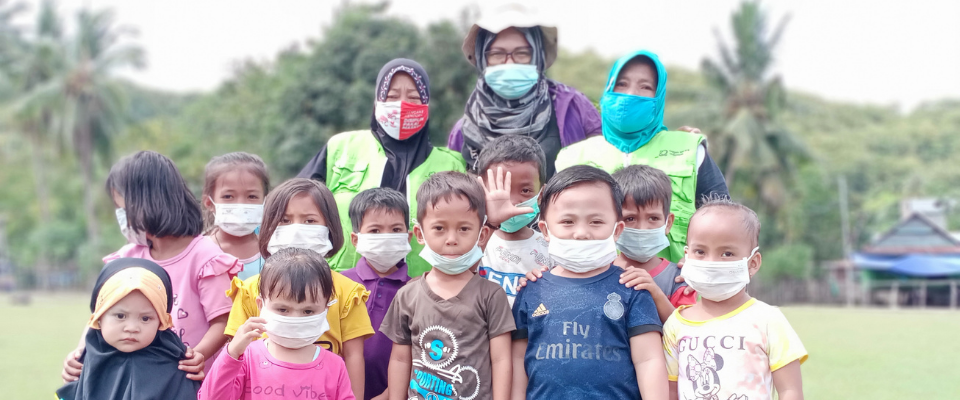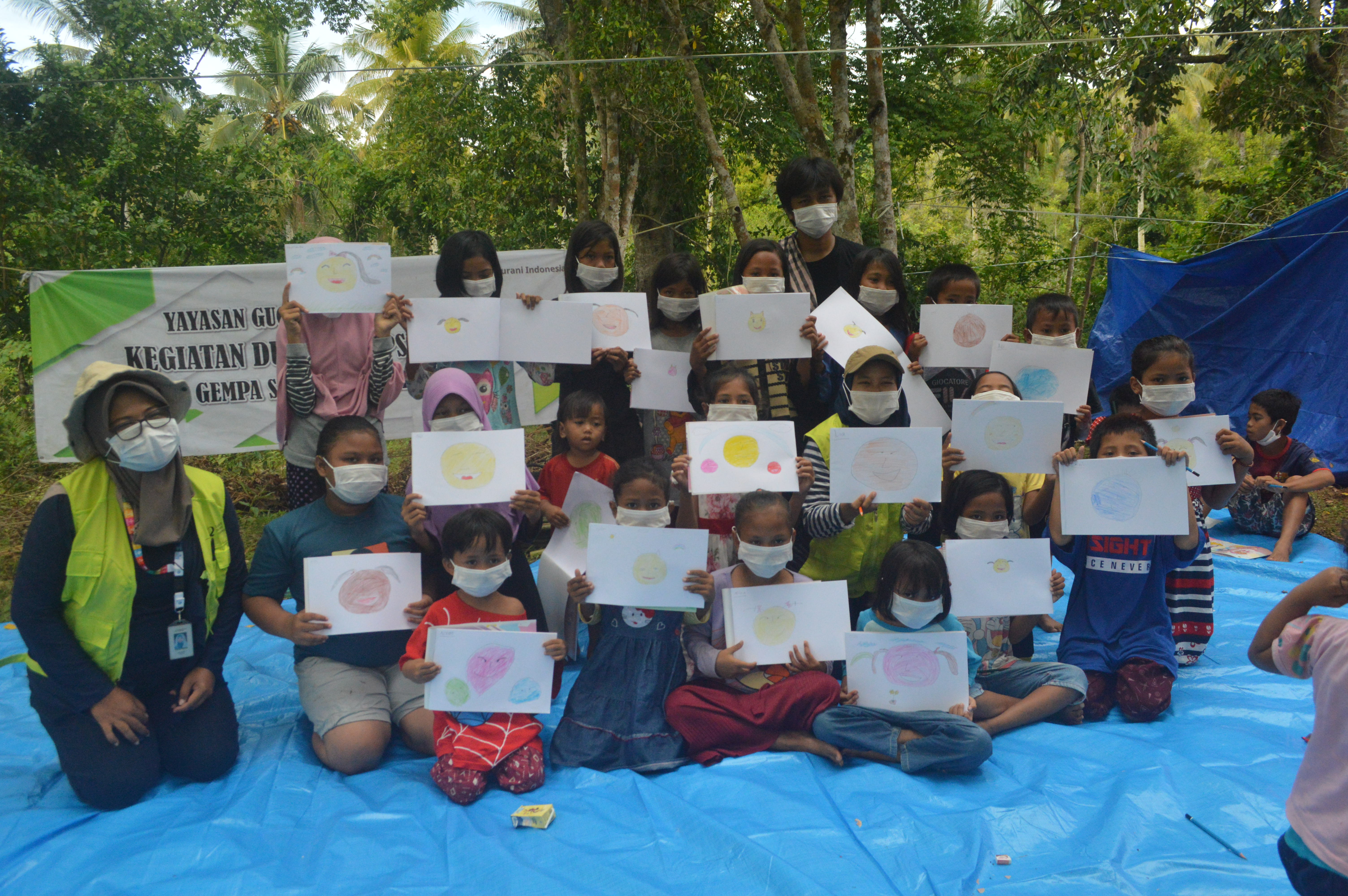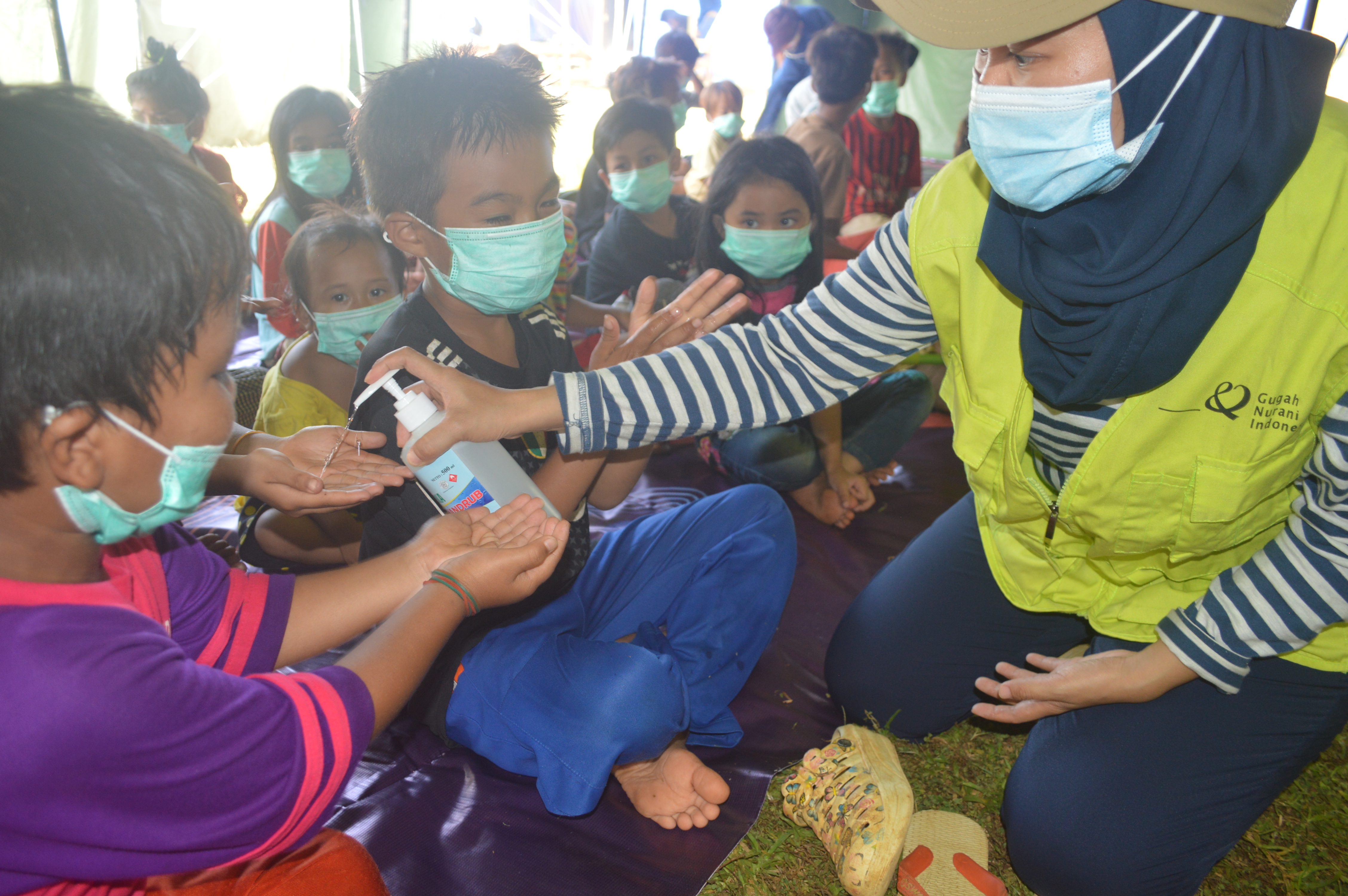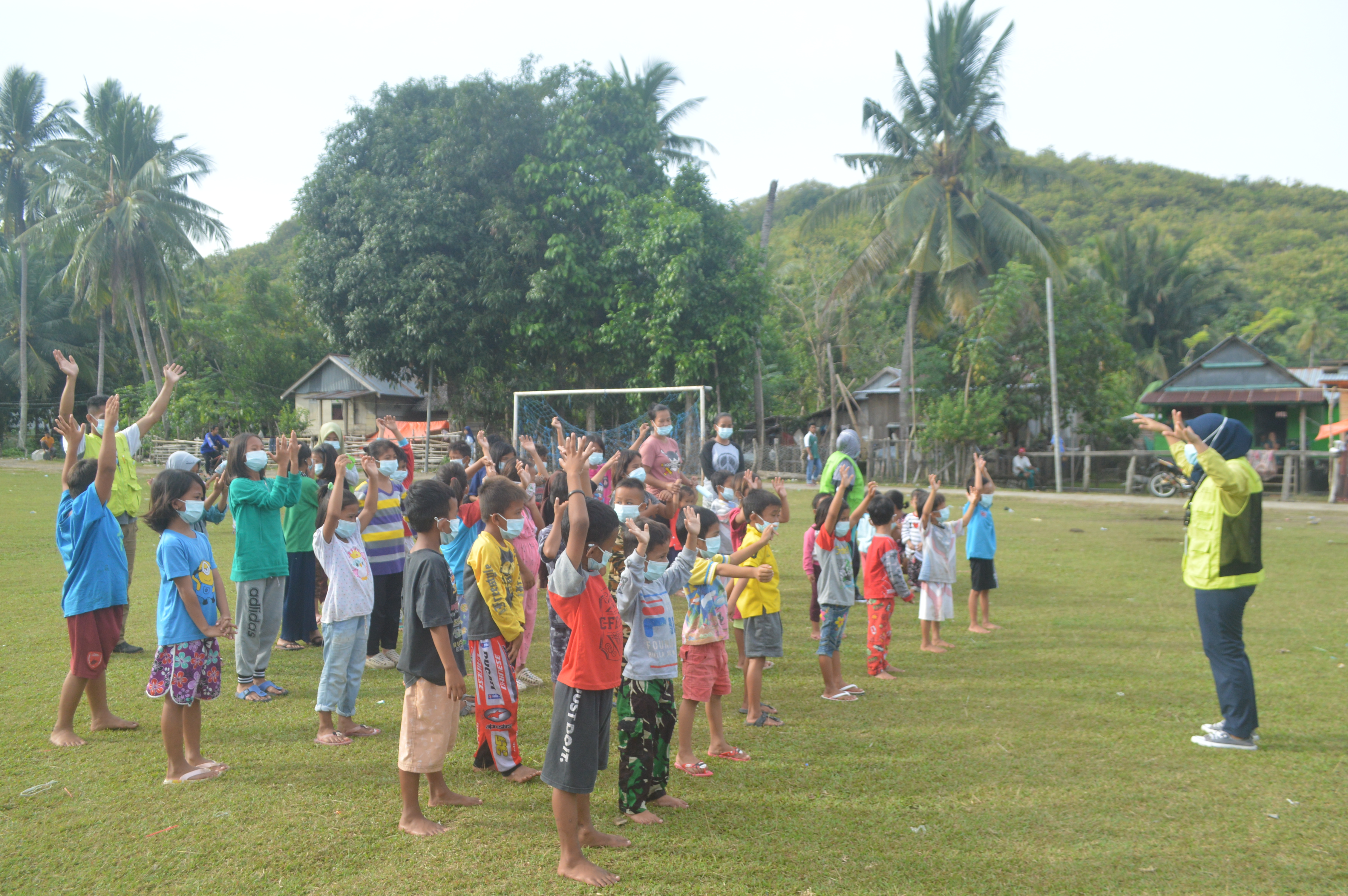
Mamuju and Majene Emergency Response
Most of the residents of Botteng Village forced to live in refugee camps because their houses were destroyed. As far as the eye could see there were only rubbles scattered around. Some residents built emergency tents from tarpaulin around the field. Some others chose to go to higher areas for safety reasons; plastics, cloth, anything was used to build a shelter. It had been two weeks for the residents to live in refugee camps. As we walked around, there were tense faces among the residents we met. Some of them were still shrouded in fear. However, at the same time, they can still express gratitude for surviving the earthquake that occurred on January 15, 2021. At that time, a tectonic earthquake hit at 1:28 WIB with a magnitude of 6.2 in Mamuju and Majene Districts, West Sulawesi.

I came together with my colleagues from the emergency response task force of Gugah Nurani Indonesia. We had a mission to provide services needed by residents in our capacity. After collecting data and coordinating with the local government, we designed psychosocial support activities for children in four villages in Mamuju District. During 15 days of activities in this area, we provided psychosocial support for 239 children with activities in the form of education in dealing with emergency situations, clean and healthy living habits, expressing emotions through songs and pictures, and several other activities that we routinely do every day. Given that we were still in the midst of the pandemic, we ensured that children are safe with health protocols to prevent the spread of Covid-19 by washing hands, using masks, and checking body temperature. This protocol applies to children and all facilitators involved.

 Not all children can learn and play in the camps where they are displaced. Realizing this, we did outdoor activities where the children are free to run around and laugh out loud with their friends. To conduct activities in an emergency response situation certainly has its own challenges for us social workers in the field. Seeing children laughing and enjoying every activity with us is our reward. Maisyarah, a grade 6 elementary school student from Orobatu Village, expressed her joy in doing activities with Gugah Nurani Indonesia. Together with other friends, she hopes to return and live at home and study as before, even before the pandemic.
Not all children can learn and play in the camps where they are displaced. Realizing this, we did outdoor activities where the children are free to run around and laugh out loud with their friends. To conduct activities in an emergency response situation certainly has its own challenges for us social workers in the field. Seeing children laughing and enjoying every activity with us is our reward. Maisyarah, a grade 6 elementary school student from Orobatu Village, expressed her joy in doing activities with Gugah Nurani Indonesia. Together with other friends, she hopes to return and live at home and study as before, even before the pandemic.In addition to psychosocial activities with children, Gugah Nurani Indonesia also distributed hygiene kits in the form of bath soap, toothpaste, toothbrushes, towels, blankets, and clothes to 1,000 families in eight villages in Mamuju Regency and one village in Majene Regency.
As social workers, of course, we never expect to come to an area for a disaster. However, if a disaster occurs in Indonesia, we are committed to contributing our capacity to alleviate the burden on the affected people, especially children.
Rinawati, emergency response task force member of Gugah Nurani Indonesia
